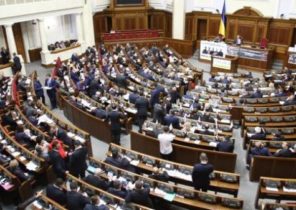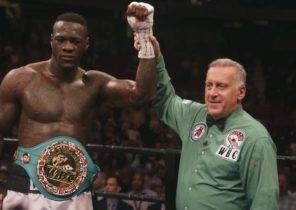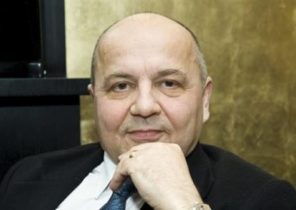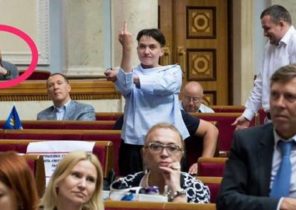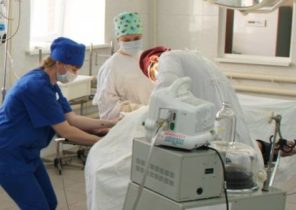
Moscow — Russia acknowledged for the first time that officials from the world of sport went to one of the biggest conspiracies in sports history, organizing a major doping operation in which were involved many Russian athletes, and which has cast a shadow not only on Winter Olympics 2014, but on the whole Olympic movement.
In an interview with the New York Times, Russian officials have said that they no longer dispute the damning evidence of a doping programme which has very little, if at all there is no historical precedent.
“It was a conspiracy at the departmental level”, — said acting General Director of the Russian anti-doping Agency Anna Antselevich, referring to the multi-year fraudulent scheme. However, she stressed that high-level government leaders by this agreement is not involved.
One Director of the laboratory during the Olympics, faked urine tests and provided athletes a cocktail of stimulant drugs, tainted by the world’s most prestigious competitions. The staff of the Federal security service (successor to KGB), opened containers of urine samples. And the Deputy Minister of sport for many years covered the leading athletes who took illegal drugs.
Russian sports officials vehemently denied the existence of a doping programme, despite the detailed confession of the former head of the main anti-doping laboratory in the country Gregory Rodchenkov. He outlined them in may in an article published by the New York Times and later confirmed anti-doping Agency.
Appointed WADA investigator Richard McLaren (Richard McLaren) this month has published more than ample evidence that forced the international Olympic Committee to begin disciplinary proceedings against dozens of other Russian athletes.
A sharp change in Russia’s position may be due to its desire to reconcile with the regulatory authorities, who decided that she should recognize the conclusions of the recent investigation, and only then will be able to be re-certified to conduct doping tests and again qualify for the Olympic games.
But officials continue to deny accusations that the doping programme was implemented with public support and funding. Under government they mean President Vladimir Putin and his entourage.
Antselovich not have a direct interest in the course of the investigation, said that the revelations shocked her.
81-year-old Vitaly Smirnov, who started career as a sports official in the Soviet era, and this year received an assignment from Putin to reform national anti-doping system, said he did not want to talk to involved in the doping people. According to Smirnov, he did not meet with those officials mentioned in the report of the McLaren. Smirnov stressed that these people are fired and he doesn’t know where they are.
“In my opinion — as a former Minister of sport, as President of the Olympic Committee — we made a lot of mistakes,” Smirnov said, noting that he will reckon with decisions of the international governing bodies for each sport, based on evidence and proofs. However, he refuted the idea that doping system enjoyed state support.
McLaren on Tuesday expressed satisfaction with the fact that Russian officials no longer dispute its conclusions. He made the assumption that these people are motivated by the desire to stop further investigation to identify the extent of fraud. “It’s damage — said McLaren. On the facts, you can stick different labels, and they present a different point of view on the state, but in General it is in some measure a word game”.
The Olympic games in Sochi in 2014 was the favorite brainchild of Putin, who actively fought for the right to carry it out, and took part in its preparation. Proud mention of the Sochi Olympics can be seen everywhere in the headquarters of the Russian Olympic Committee, located on the banks of the Moscow river. Among other things, in the lobby of this building has set a two-meter matryoshka signed Russian Olympians.
To the doping scandal were involved, many athletes whose pictures adorn the hallways of the Olympic Committee. Some of them had been disciplined and 650 athletes of the charges. On one picture you can see how the Russians are kissing their medals, and on the other, as Paralympians in wheelchairs rise up triumphant bouquets of flowers.
“We must identify the reasons why young athletes take performance enhancing drugs, which they agreed to it,” said Smirnov, demonstrating the desire to go further, not to seek the perpetrators of the previous violations.
But although he and other officials gave the signal that agrees with the main findings of the investigation of McLaren, the positions have largely irreconcilable. This suggests that deception in the interest of Russia was to neutralize the more favorable, in their opinion, the attitude of international sports bodies to Western countries.
“You’ve seen Fancy Bear?” asked Smirnov, referring to the medical records stolen by a group of cyber-espionage, which is associated with the Russian military intelligence GRU and the suspected hacking of hacking into the computers of the National Committee of the Democratic party. These records show that hundreds of Western athletes received special medical permission to take prohibited drugs to legitimate medicinal purposes.
“Russia has never had such opportunities, which get other countries”, — said Smirnov.
“In Russia there is a General feeling that we had no chance,” he added, acknowledging that the anabolic steroids that are taken by the Russian athletes, the Supervisory authorities have never considered acceptable from a medical point of view.
Supposedly protected from unauthorized manipulation of containers with samples of doping of Russian athletes in Sochi skillfully revealed. Thus, officials had an opportunity to replace steroids containing urine. Smirnov and his advisers assumed that the same thing happened at other Olympics.
“WADA was lucky that it turned out to be Rodchenkov, — said the lawyer of the Russian Olympic Committee Viktor birch. Such things could happen anywhere — maybe in China, maybe in London. Because the system is undermined”.
After the Russian athletes were forbidden to participate in competitions, the doping control denied a license, Smirnov together with his team of two dozen people focused on overhauling the Russian anti-doping system to conform to international requirements. Formed in the summer of in this group included Russian politicians, sportsmen, businessmen and even famous pianist.
As told Smirnov, the Commission is studying the experience of anti-doping systems of some countries, such as France, Germany and Britain, held workshops for national governing bodies for various sports and started discussion on how to change the mentality.
It is not only a reputational and economic risks, which became an important motif in the work of the Commission Smirnova.
The composition of this Committee includes Mikhail Kusnirovich, the owner of the company Bosco, which clothes and equips the Russian Olympic team and is a member of the International Olympic Committee.
“We have created this idea that being a Russian is cool,” said Kusnirovich, proudly displaying samples of his company office overlooking Red square. His office is decorated with numerous commemorative Olympic torches, including the Olympic games in Rio, which is the autograph of the President of the IOC.
Hundreds of kits, made by his company for the Russian Olympic and Paralympic athletes to the games in Brazil, were left unclaimed, as many athletes were forbidden to participate in the competition. Accreditation at the Olympic games was also denied by Russian government officials.
Doping scandal, said Kusnirovich, caused damage to his company because of the sale of goods of the Russian national team has declined.
Russia has also suffered from the fact that it was deprived of the right to hold many international sporting events. At the beginning of 2017 in different regions of Russia was to take place numerous competitions, but was moved to other countries.
But while officials talk about their uncomplaining acceptance of the facts of doping, they don’t want to lay the blame for the allowed systematic violations of any specific entities.
“I think we a whole life is not enough to figure it out, to see who is the winner and who the loser, who is right and who is wrong, said Kusnirovich, who called on the sports authorities not to punish the country at future Olympic games for what happened in the previous. Even in the days of Stalin said: “the Son of the father is not the Respondent””.

